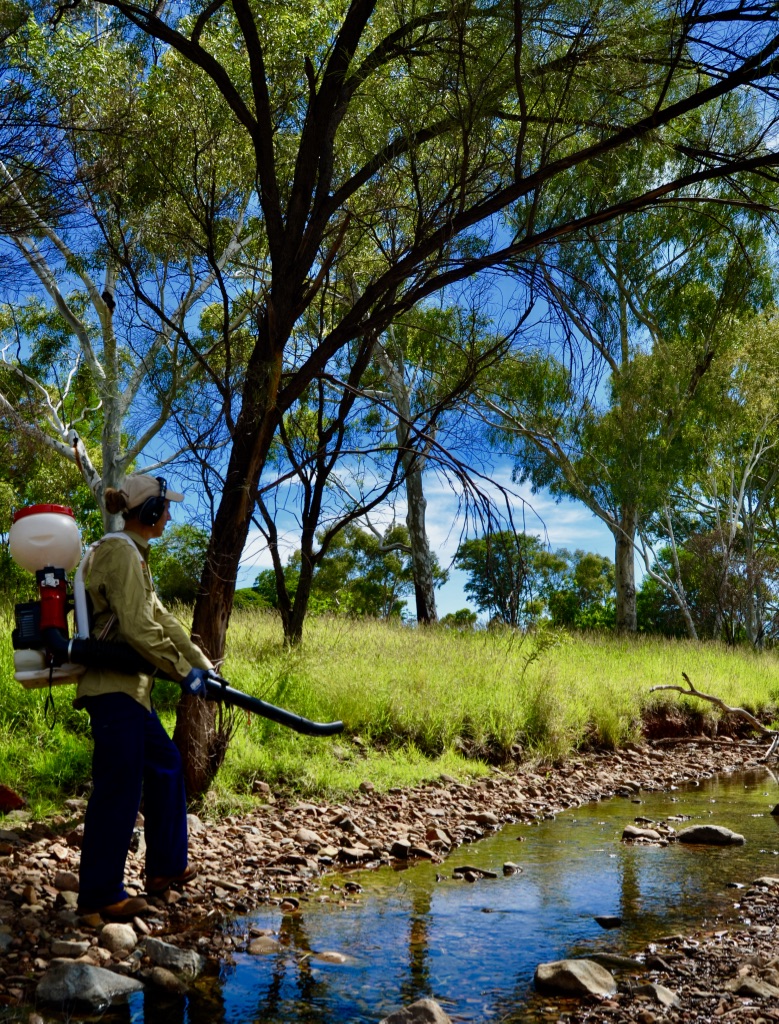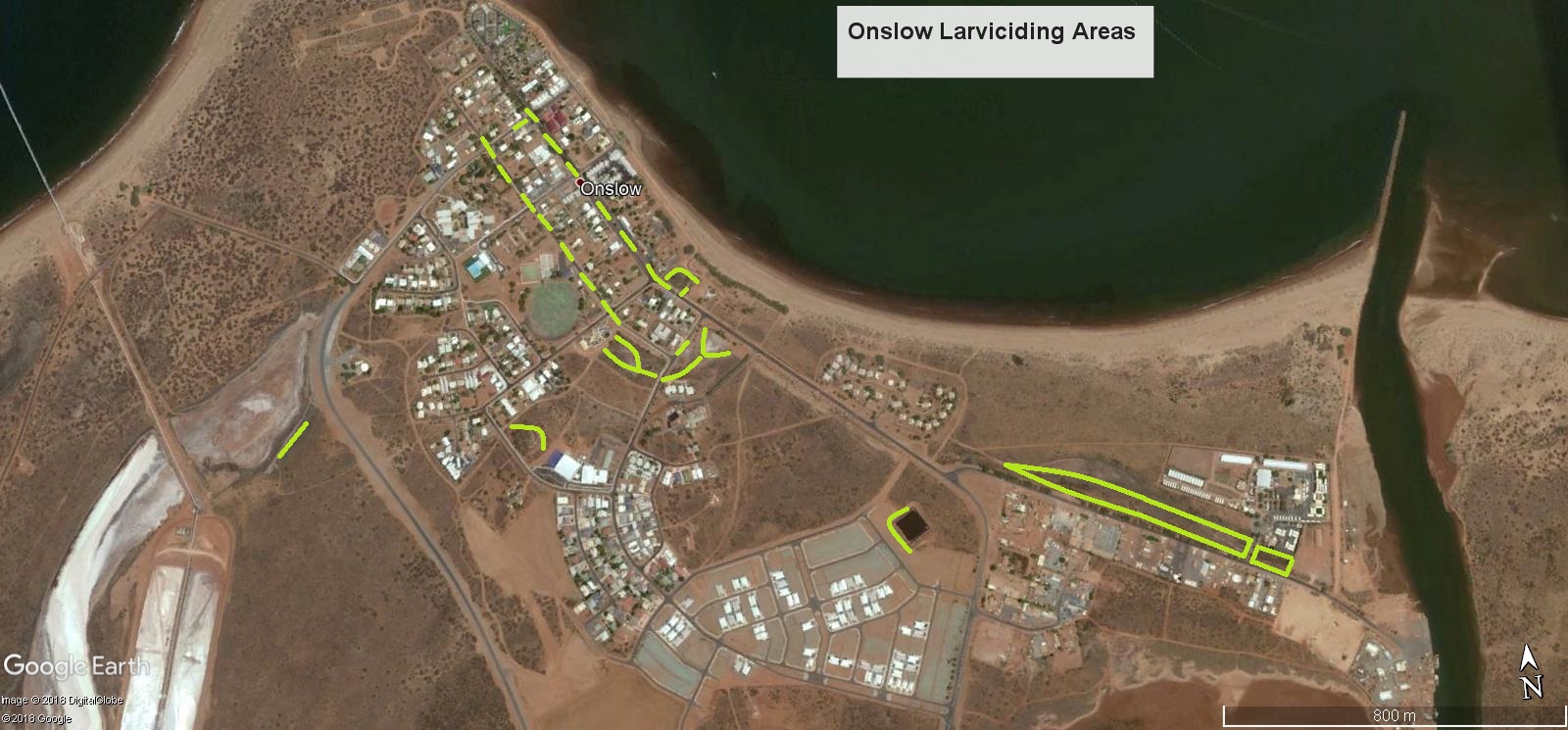Published on Wednesday, 30 May 2018 at 12:00AM
The regular treatment of mosquito larvicide to existing and potential mosquito breeding habitats is a key mosquito control strategy for the Shire. The mosquito larvicide used is VectoBac Biological Larvicide.
What is larviciding?

Larvicides target larvae in the breeding habitat before they can mature into adult mosquitoes and disperse into the environment and pose a health or nuisance risk by biting. The larvicide is applied directly to water by hand (to sumps, storm water junctions etc.) or by mechanical thrower (for larger water bodies such as storm water basins, creeks, drains, swamps, oxidation ponds etc).
Larviciding is the preferred treatment given it stops the larvae maturing to adult mosquitos, is target specific and environmentally friendly, so does not cause harm to other aquatic life.
The maps below show the key areas in which we regularly larvicide.
ONSLOW

PARABURDOO

TOM PRICE

Other mosquito control strategies used by the Shire are:
- mosquito trapping and identification,
- requesting design improvements to drains and mosquito habitat areas to eliminate or reduce opportunities for mosquito breeding,
- providing input to land development applications to ensure that the end result prevents opportunity for mosquito breeding,
- participating in the Department of Health Fight the Bite public promotion program
- participating in the Department of Health sentinel chicken program; a monitoring program for the early identification of mosquito borne virus activity.
How can you protect yourself?
It is important to avoid mosquito bites by taking a few simple steps, such as:
- avoid outdoor exposure from dusk and at night in all areas of high mosquito activity;
- wearing protective (long, loose-fitting) clothing when outdoors; and
- using personal repellant containing diethyl toluamide (DEET) or picaridin. The most effective and long-lasting formulations are lotions and gels. Most natural or organic repellants are not as effective as DEET or picaridin;
- ensuring insect screens are installed and completely mosquito proof: use mosquito nets and mosquito-proof tents;
- ensuring infants and children are equally protected against mosquito bites, preferably with suitable clothing, bed nets or other forms of insect screening.
- Check your backyard or workplace for habitats where mosquitos can breed, including bird baths, buckets, pot plant saucers, discarded tyres, blocked guttering, unsealed septic tanks and unscreened rainwater tanks.
Back to All News